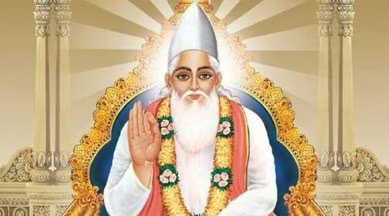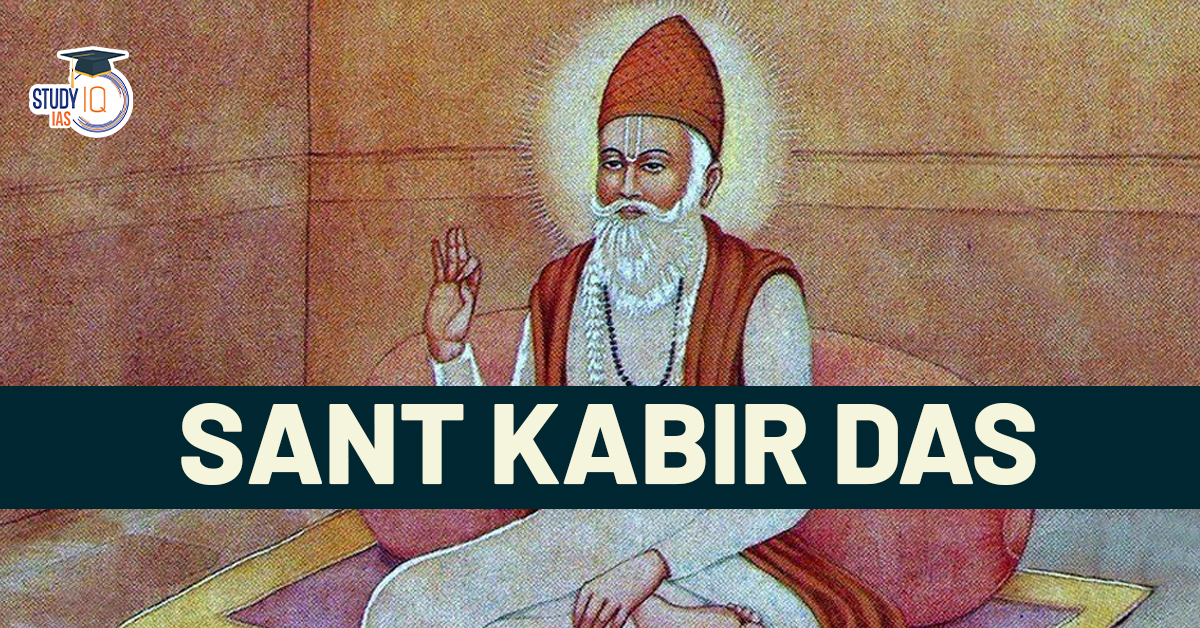Table of Contents
Context: Sant Kabir Das Jayanti was celebrated on June 11, 2025, marking his 648th birth anniversary and honouring his legacy of spiritual unity and social reform.
Who Was Sant Kabir Das?
- Sant Kabir Das was a 15th-century mystic poet, Bhakti saint, and social reformer from Varanasi, Uttar Pradesh.
- Born in 1440, believed to be raised by a Muslim weaver family.
- Symbol of religious harmony and spiritual universality.

Notable works include:
- Bijak, Sakhi Granth, Kabir Granthavali, Anurag Sagar.
- Several verses are included in the Guru Granth Sahib.
Philosophy of Sant Kabir Das
- God within the self: Emphasised introspection over rituals, saying God resides within, not in idols or temples.
- Nirguna Bhakti: Advocated devotion to a formless, universal divine (Nirguna Brahman)—not personal gods.
- Rejection of rituals: Opposed religious orthodoxy, superstitions, and caste-based discrimination.
- Ethical living over dogma: Stressed humility, service (seva), simplicity, and Nam-smaran (chanting the divine name).
- Equality and non-violence: Championed social justice, non-violence (ahimsa), and human dignity for all.
Influence of Sant Kabir Das
- Kabir Panth: A devotional sect founded on his teachings, promoting equality and simplicity in spiritual practice.
- Impact on Sikhism: Highly revered by Guru Nanak; many of Kabir’s hymns are included in the Guru Granth Sahib.
- Inspired reform movements: Influenced Dadu Panthis and other groups who resisted casteism and ritualism.
- Universal appeal: Respected by both Hindus and Muslims, Kabir remains a unifying spiritual figure across faiths.


 Ancient Buddhist Site Discovered in Kash...
Ancient Buddhist Site Discovered in Kash...
 Poompuhar Port: Ancient Sangam-Era Marit...
Poompuhar Port: Ancient Sangam-Era Marit...
 UNESCO World Heritage Sites of India Lis...
UNESCO World Heritage Sites of India Lis...

























